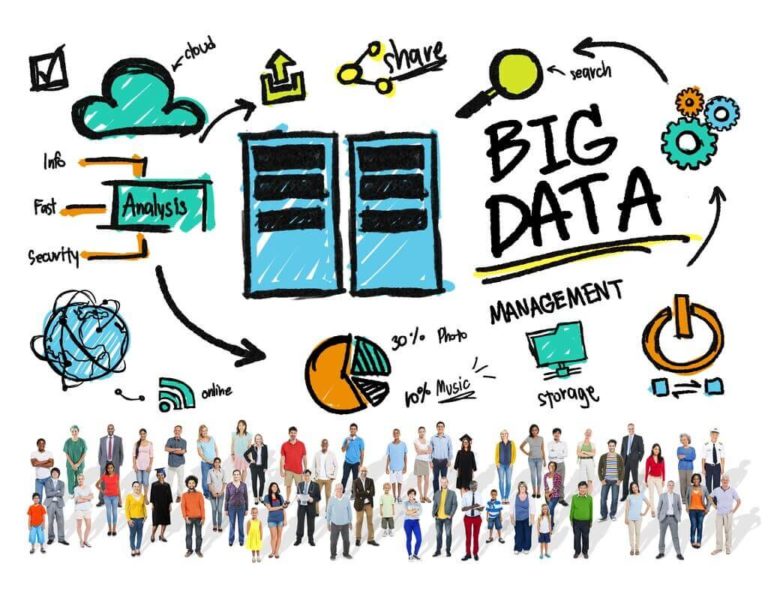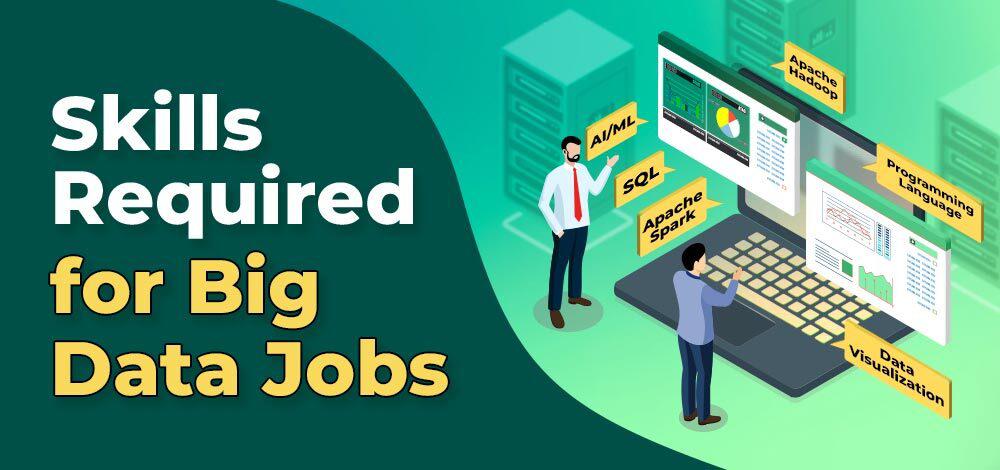All about big data jobs
Published

There are many different types of Big Data Jobs that exist in different industries and companies. Some of the most common big data jobs are:
- Data Scientist: A data scientist collects, analyzes and interprets large amounts of data to identify insights and trends that can help in decision making.
- Data Architect: A data architect designs, implements, and manages the architecture of databases and data management systems to ensure they function efficiently and securely.
- Data Analyst: A data analyst is responsible for interpreting and analyzing data to identify trends and patterns that can aid in decision making.
- Database Administrator: A database administrator is responsible for installing, configuring, and maintaining databases to ensure they function securely and efficiently.
- Data Engineer: A data engineer is responsible for designing, maintaining and integrating data pipelines and data infrastructure to ensure that data can be processed and stored efficiently and effectively.
- Business Intelligence Analyst: A business intelligence analyst is responsible for collecting, analyzing and interpreting data to identify business trends and support decision making.
- Machine Learning Engineer: A machine learning engineer designs and implements machine learning algorithms and models to make predictions and insights from data.
- Big Data Architect: A Big Data Architect is responsible for designing and implementing big data systems capable of processing and storing large amounts of data.
This is just a small selection of big data jobs and there are many more roles and positions associated with processing, analyzing and managing data.
How difficult is it to get a big data job?

Those : educba.com
The difficulty of having one Big Data Getting a job depends on various factors such as your qualifications, experience, company requirements and the general competitive situation in the industry.
As a rule, big data jobs require a high level of technical competence, experience in dealing with Data , good knowledge of programming languages such as Python, Java or R, as well as experience with databases, data analysis tools and cloud computing platforms such as AWS or Microsoft Azure. A degree in a related field such as computer science, mathematics, statistics or data science is usually also an advantage.
In many cases, companies also look for candidates with experience in specific industries or disciplines, such as finance, healthcare, marketing or e-commerce.
Because big data is a rapidly growing field and there is a high demand for qualified professionals, competition for these jobs can be very high in some regions and industries. However, it is also important to note that many companies are willing to invest in the training and development of promising candidates, especially if they demonstrate a strong foundation in the required skills and a passion for the field.
In which areas are big data jobs available?

Those : cruzstreet.com
Big data jobs exist in various industries and areas that require collecting, storing, and analyzing large amounts of data. Some of the most important industries and areas are:
- Technology: Technology companies such as Google, Amazon, Microsoft and IBM are leaders in the development and application of big data technologies.
- Financial services: Banks, insurance companies and other financial service providers collect and analyze large amounts of data to assess risks, make investment decisions and prevent fraud.
- Healthcare: Healthcare uses big data tools to identify diseases, improve medical care and optimize treatment outcomes.
- Marketing and advertising: The marketing and advertising industry uses large amounts of data to better understand target groups, create personalized advertising and optimize campaigns.
- E-commerce: E-commerce companies collect and analyze large amounts of data to understand customer needs, analyze purchasing behavior and create personalized offers.
- Education: Educational institutions use big data tools to track student learning progress, optimize teaching methods, and improve the effectiveness of educational programs.
- Logistics and Transportation: Companies in the logistics and transportation industry collect and analyze large amounts of data to optimize routes and deliveries, plan vehicle maintenance, and improve delivery times.
These are just a few examples where big data jobs are available. With the growing importance of data in almost all industries, more and more big data jobs will also emerge in other areas.
What are the requirements for Big Data jobs?

Those : geeksforgeeks.org
Requirements for big data jobs can vary depending on the role and company. However, in general, there are some basic skills and knowledge required for most big data jobs:
- Programming skills: Big data tools and technologies often require programming skills, especially in languages like Python, Java, Scala, and R.
- Database and SQL knowledge: A basic understanding of databases and SQL is necessary to effectively query and analyze data.
- Statistics and math skills: Big data analysis often requires statistical and math skills such as probability, linear algebra, and multivariate analysis.
- Experience with Big Data Technologies: Experience with big data technologies such as Hadoop, Spark, NoSQL databases and cloud platforms is often required.
- Communication and presentation skills: Big data analysis often requires the ability to communicate complex technical concepts in simple, easy-to-understand messages.
- Problem-solving skills: Big data analysis often requires the ability to identify complex problems and develop effective solutions.
- Industry-specific knowledge: Depending on the industry, industry-specific knowledge may be required to put big data results into a business context.
There are also specific roles in big data jobs, such as data scientist, data analyst, big data engineer or business intelligence analyst. Each of these roles may require specific requirements and skills.
How difficult is it to master big data?

Those : roberthalf.com.hk
Big Data encompasses a wide range of technologies, tools and concepts, so the difficulty of mastering it depends on various factors, including learning style, existing skills and experience, and the complexity of the Big Data technologies used. However, it typically requires a certain level of technical understanding, math knowledge, and programming skills.
One way to master big data is to learn basic concepts and skills and then gain practical experience by working on real-world projects. It can also be helpful to take courses or certifications in big data technologies such as Hadoop, Spark, and NoSQL databases, and regularly follow current trends and developments in the industry.
Overall, mastering big data technologies and concepts requires continuous learning and dedication, but it can be a rewarding career option as there are many opportunities in different industries.








